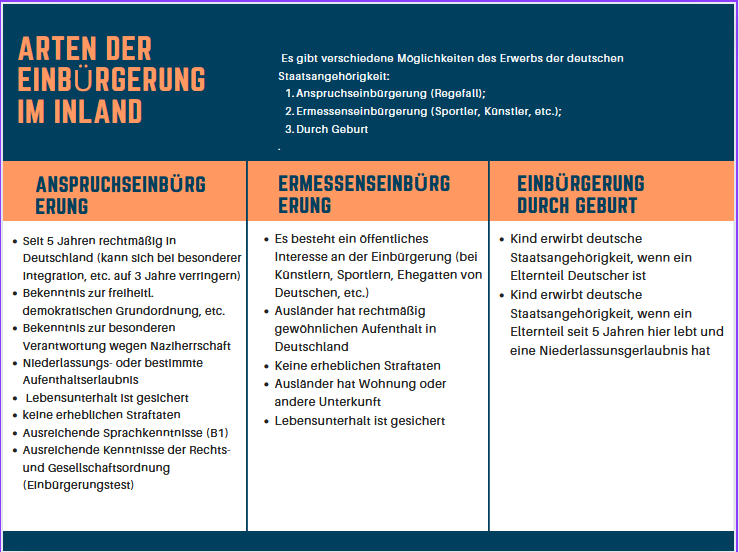Administrative Court of Düsseldorf, Decision of 29.07.2024, Case No.: 8 K 1094/24
Introduction of the Case
The plaintiff, born in Kosovo, entered Germany in 1999 and was granted a settlement permit in 2014. In 2021, she applied for German citizenship. The defendant indicated that citizenship would be granted on the condition that she renounced her Serbian and Kosovar citizenship. After successfully renouncing her Serbian citizenship, the application remained unprocessed, leading the plaintiff to file a lawsuit in 2024 to pursue her naturalization. She argued that she had never acquired Kosovar citizenship and that it was unreasonable to travel to Kosovo to resolve the matter.
Defendant’s Argument and Clarification of Citizenship
The defendant insisted that the plaintiff should renounce her Kosovar citizenship, referring to the Kosovar nationality law and asserting that the plaintiff was a Kosovar citizen. In order to complete her naturalization in Germany, the defendant argued that the plaintiff must provide formal proof of Kosovar citizenship and be released from it. The defendant emphasized that the plaintiff had not fulfilled her obligation to cooperate.
Court Decision: Right to Naturalization
The court ruled in favor of the plaintiff, granting her the right to naturalization. The administrative action of the defendant in not processing the application was deemed unlawful, as it violated the plaintiff’s rights. The plaintiff’s claim was based on Section 10, Paragraph 1, Sentence 1 of the Nationality Act (StAG). The court found that there were no grounds for denial. The plaintiff’s identity and nationality were not in question. The court confirmed that the plaintiff was solely a Kosovar citizen, having automatically acquired Kosovar citizenship based on her residence in Kosovo on January 1, 1998, in accordance with the Kosovar constitution and laws.
Requirements for Clarification of Citizenship
The court emphasized that both identity and nationality must be clarified for naturalization. These requirements are essential according to the case law of the Federal Administrative Court. The „step model,“ which was primarily developed to clarify identity, was referenced. However, this model does not apply unconditionally to the clarification of nationality. It was clarified that a confirmed identity does not automatically mean that nationality is fully established. In this case, the plaintiff’s Kosovar nationality was confirmed during the proceedings through her registration in the Kosovo civil registry and additional documented evidence.
Significance of the Ruling and Further Legal Steps
The ruling has significant implications for similar cases where naturalization applications are denied due to unclear citizenship. It demonstrates that German authorities are obligated to independently verify citizenship, rather than placing the full burden of proof on the applicants. The court highlighted that there are no rigid rules for proving foreign nationality and that the absence of a valid passport does not automatically justify the rejection of an application.
In the final decision, the costs of the proceedings were imposed on the defendant. The defendant now has the option to appeal the decision within one month if there are serious doubts about the correctness of the ruling or if the matter is of fundamental legal significance.
In summary, the plaintiff was granted the right to naturalization, as her Kosovar citizenship, contrary to the defendant’s position, was sufficiently clarified, and therefore, no obstacle remained for her naturalization into the German state.

Source: Administrative Court of Düsseldorf
Important Note: The content of this article has been prepared to the best of our knowledge and belief. However, due to the complexity and constant evolution of the subject matter, we must exclude liability and warranty. Important Notice: The content of this article has been created to the best of our knowledge and understanding. However, due to the complexity and constant changes in the subject matter, we must exclude any liability and warranty.
If you need legal advice, please feel free to call us at 0221 - 80187670 or send us an email at or send an email to info@mth-partner.de info@mth-partner.de
Lawyers in Cologne advise and represent clients nationwide in immigration law.

